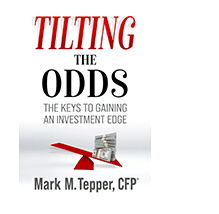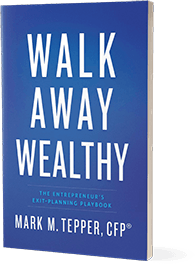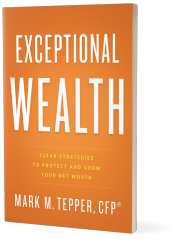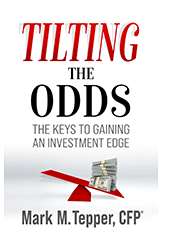Apps like Robinhood, Acorns, and Stash have disrupted the investment industry. When Robinhood launched a zero cost-per-trade platform, it forced the big three (TD Ameritrade, Schwab, and Fidelity) to follow suit. But these trading apps are doing more than just impacting trade costs. How are the trading apps impacting and changing the game of investing? Is it for better—or worse? Listen to this episode of The Capitalist Investor to hear our take.
Outline of This Episode
- [0:46] Keeping the app theme going: investments apps
- [4:16] Robinhood has been all the rage
- [17:08] Where Acorns fits into the game
- [20:52] Think or Swim, TD Ameritrade, E-Trade, & Fidelity
- [23:23] Key takeaway: investing is NOT a game
The rise of investment apps
Everyone wants the world at their fingertips. People want immediate gratification (like the rise of Tinder when we used to only have Match.com). That has bled through to other areas of people’s lives—like investing and trading. So investment apps such as Robinhood were born. Robinhood democratized investing so that someone with only $100 can get started.
One of Derek’s key takeaways is that the apps and technology are great—but you have to be careful. You have to know what your goals are, know what you want to accomplish, and do some research. If you’re thinking about getting into the investing world, you need to have a gameplan in place because these apps have the potential to be dangerous.
Robinhood has been all the rage
People with no investment background are signing up left and right. Robinhood has picked up steam this year with over 10 million users. Robinhood, Acorns, and Stash created fractional investing. For an entry-level novice investor, it would’ve been impossible to invest in some of those companies. Wanna-be investors probably couldn’t afford a single share of Tesla. But Robinhood allowed the common man to buy a sliver of it.
It’s an easy-to-navigate app for new investors. But when I open it, I don’t see a trading or investing app. It feels more like a social media app. I want to see how many shares I have, what each is trading at, the total value of my position, cost-basis, my dollar-return and percentage-return, and more. I want to see a chart of the stock (at least the 50-day or 200-day moving average). You can’t see that quickly in the Robinhood app.
Acorns employs a round-up strategy. When you spend $3.50 on a coffee, this app will round up your purchase to $4 and put that 50 cents in an investment account. At first glance, it seems cool, but it’s rather costly for your return. Creating some discipline for saving is smart, which can be a benefit. What’s a better option for rookie investors? Listen to hear our thoughts!
Use these apps as a starting place ONLY
Robinhood is a great way to start small and get the young investor excited, but it’s not a one-size-fits-all app. Once you’ve built a decent portfolio it makes more sense to change platforms. For example, if you hit a $25,000 account value, you can move your money to a more robust platform (like TD Ameritrade and E*Trade).
Derek’s key takeaway after looking at TD Ameritrade and E*Trade is this: Why does anyone even bother with Robinhood? If you’re a beginner, by all means, start with Robinhood or Acorns. If you’ve got a nice nest egg to invest, choose a platform with better analytics.
Derek and I chat about some of the dangers and pitfalls of the Robinhood app. If you’re not careful, you can find yourself upside down pretty quickly. Listen to hear the rest of our thoughts and recommendations.
Resources & People Mentioned
Connect with Derek Gabrielsen
- Twitter: @DerekGabrielsen
- Follow Derek on LinkedIn
- Send Derek a message here
- Check out Derek’s YouTube channel!
Connect With Mark Tepper
- Twitter: @MarkTepperSWP
- Follow Mark on LinkedIn
- Send Mark a message here
- The SWP Connect YouTube Channel
Send your questions and comments to us at info@SWPConnect.com
Subscribe to The Capitalist Investor
Show Notes by
PODCAST FAST TRACK
https://www.podcastfasttrack.com
 Enter your information below, and we will email you our new eBook, Tilting the Odds
Enter your information below, and we will email you our new eBook, Tilting the Odds




